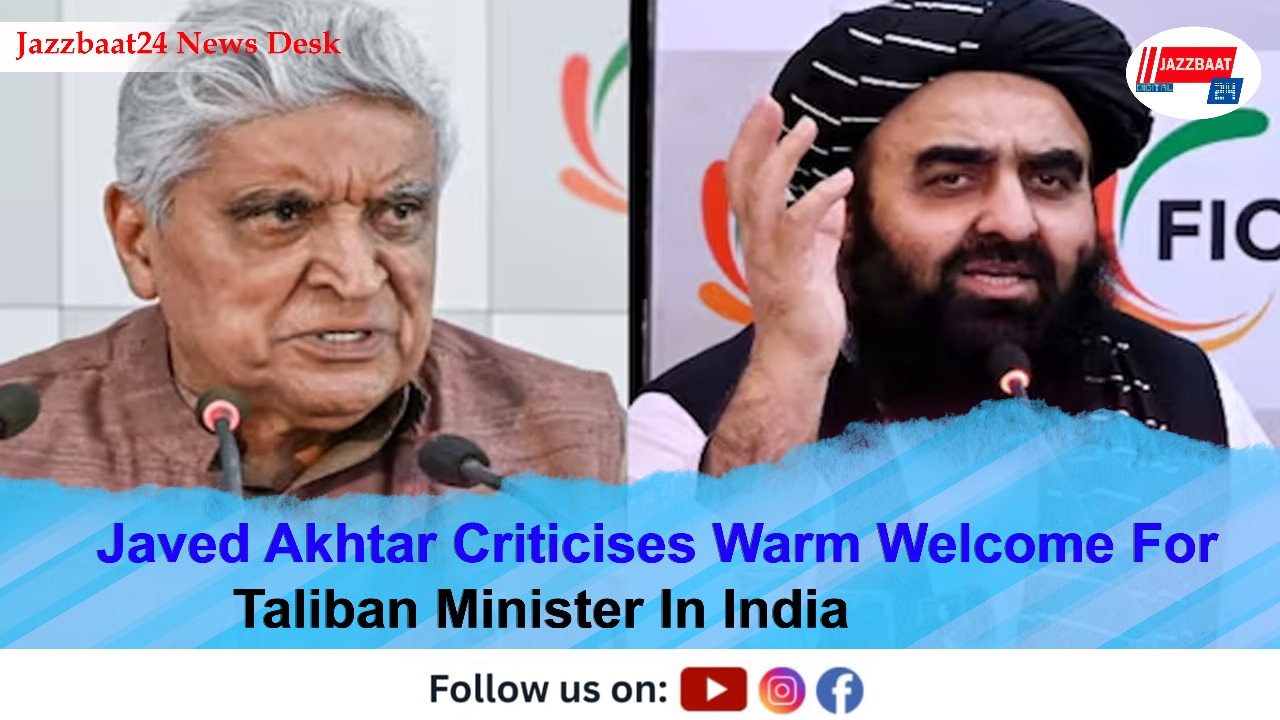
Veteran writer and lyricist Javed Akhtar has strongly criticised the warm reception given to Afghan Taliban Foreign Minister Amir Khan Muttaqi during his six-day visit to India. The visit marks the first official trip by a senior Taliban leader since the group took control of Afghanistan in 2021.
Akhtar expressed deep disappointment over the way Indian institutions and religious bodies received the Taliban representative. He said such gestures show a worrying shift in moral values and questioned why those who once spoke against terrorism are now extending respect to one of its key leaders. His criticism particularly targeted the Deoband seminary in Uttar Pradesh, which welcomed Muttaqi during his stay.
Muttaqi arrived in New Delhi after the United Nations Security Council temporarily lifted travel restrictions against him. He had been on a UN sanctions list since 2001, facing a travel ban, asset freeze, and arms embargo. Despite this, India allowed his visit, emphasising that it has not officially recognised the Taliban government and continues to push for an inclusive government in Kabul.
The visit, however, quickly turned controversial. A press conference held in Delhi drew backlash after women journalists were reportedly not invited. Opposition leaders and media associations described the exclusion as unacceptable and a setback for women’s rights. The Ministry of External Affairs clarified that it had no role in arranging the interaction.
As the criticism grew, Muttaqi addressed another media session where female reporters were allowed. He said the earlier exclusion was due to logistical issues and not intentional.
The episode has reignited debate in India about how the country should engage with the Taliban. Critics argue that offering diplomatic hospitality to Taliban officials undermines India’s long-held stance against terrorism and gender discrimination. Supporters of engagement, on the other hand, say dialogue is necessary to protect India’s strategic interests in the region.
The controversy comes at a time when the Taliban continues to face international condemnation for curbing women’s education and employment rights in Afghanistan. Akhtar’s remarks echo broader concerns among intellectuals and civil society over what they see as India’s growing tolerance towards extremist elements in the name of diplomacy.
Muttaqi’s visit and the reactions it sparked have once again brought India’s complex balancing act in Afghan diplomacy into sharp focus.